The Alliance for Science and Kenyan editors promised to collaborate to enhance science reporting and stem misinformation on biotechnology.
Speaking during a breakfast meeting with members of the Kenya Editors Guild at Capital Club in Nairobi on May 17, the Alliance for Science Executive Director Dr Sheila Ochugboju said the Alliance wants to understand the culture in Kenyan newsrooms and support editors to uphold the truth on biotechnology, genetically modified organisms (GMOs) and science in general.
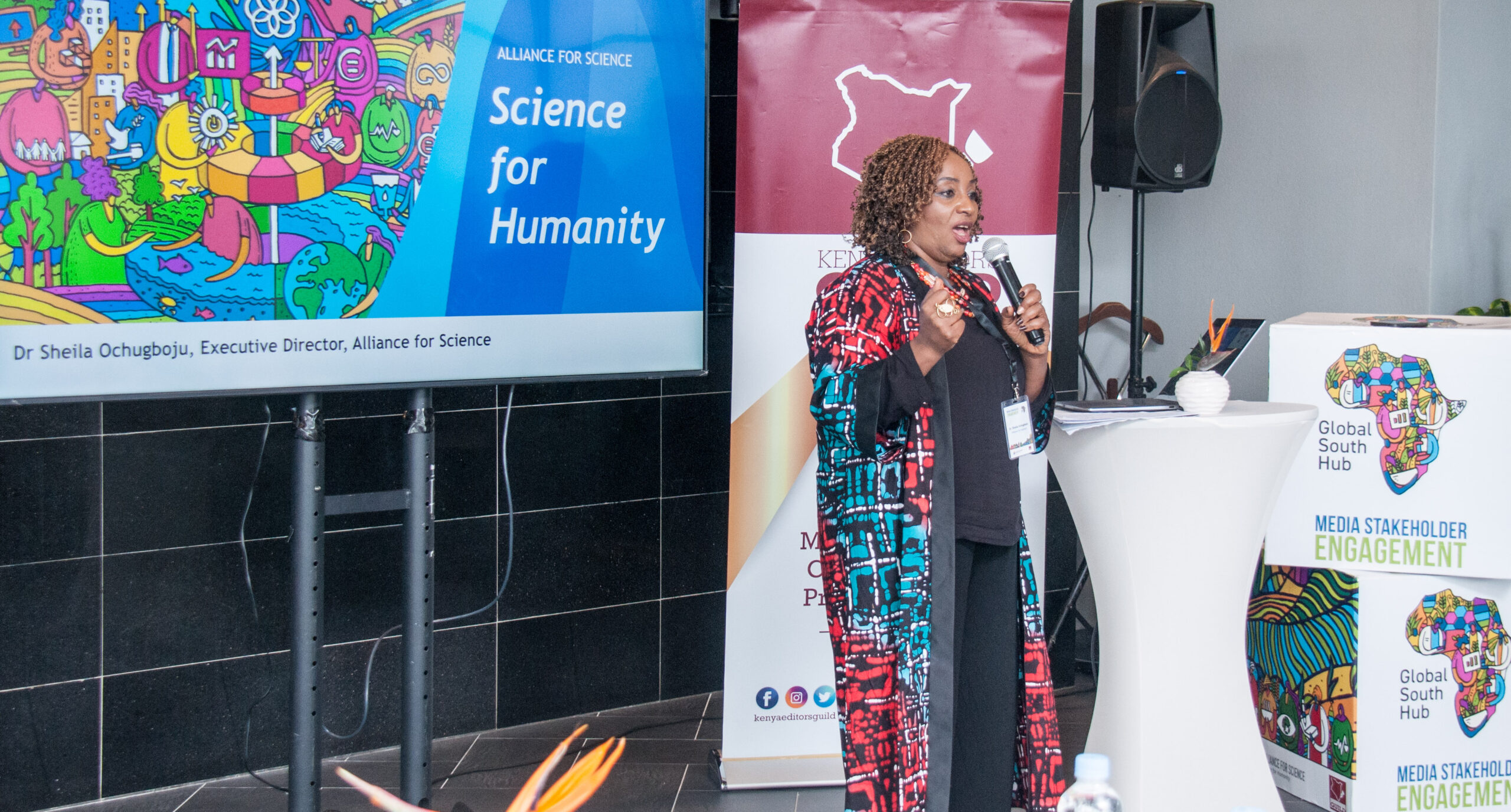
Dr Ochugboju said the Alliance does not exist to promote GMOs on behalf of big corporations.
“We are not set up to push a particular product, but to understand why people may not want it. We want people to make decisions based on accurate information they get from the media,” she said.
“People who knew us from our historical beginnings think we are just a mouthpiece around GMOs. No, we are Africans for agricultural biotechnology and how it can support innovation across the board.”
Dr Ochugboju said they have been working with journalists to promote accurate science reporting, but the missing link in the training has been the editors.
“We realized that we have forgotten the last eye, which is important because it controls the culture and energy in the newsroom. We have to uphold that space of press freedom and credibility,” she said.
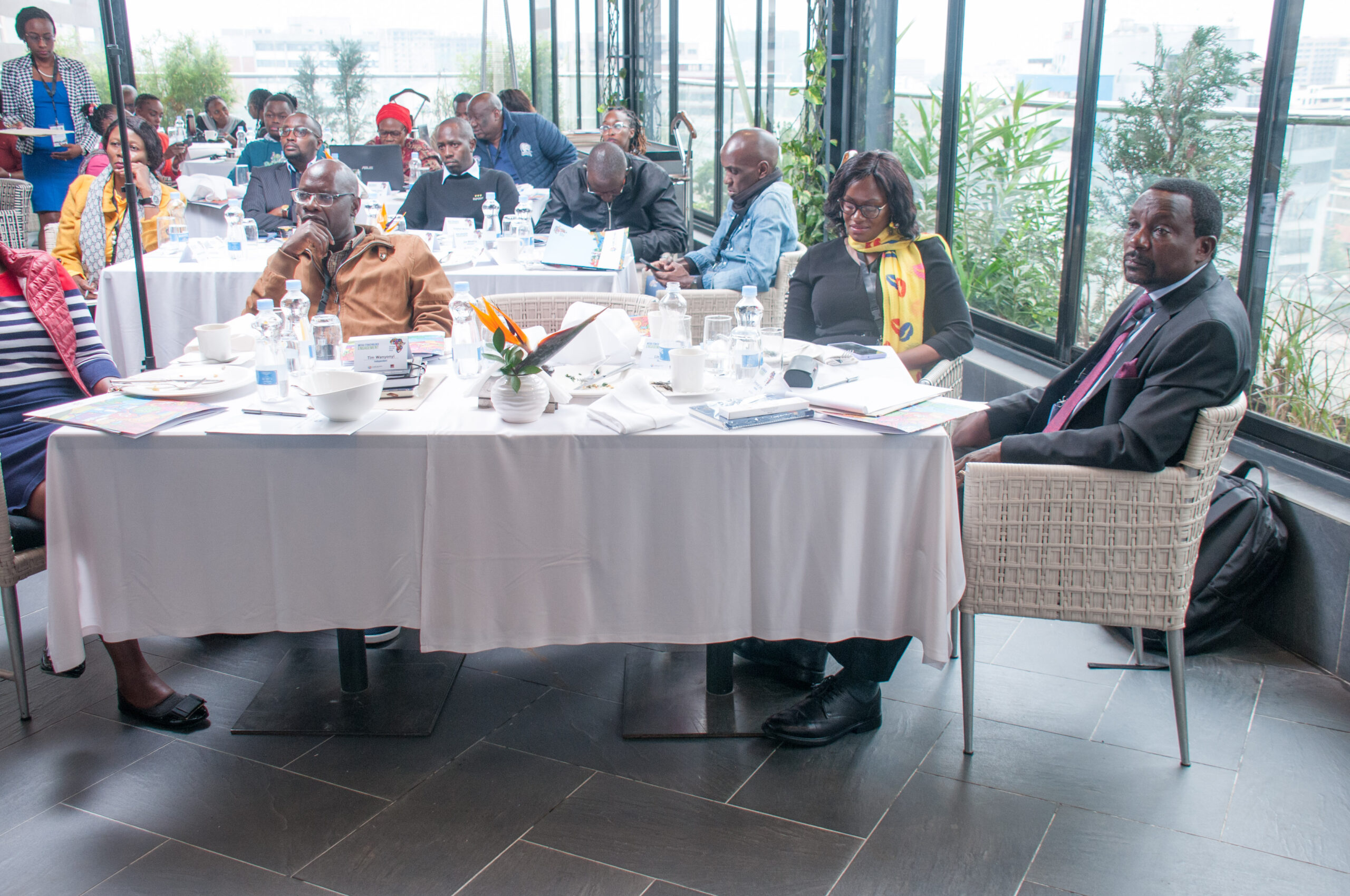
She took the editors through what Alliance for Science is and what it does, saying that the global science communication organization focuses on four Sustainable Development Goals (SDGs) of climate action, food security, global health, quality education, and misinformation.
“These very high rates of misinformation are perhaps among the worst in the world and will make it very difficult for Kenyan citizens and policymakers to make informed decisions about GMOs.”
Dr Ochugboju said they put a lot of effort into mobilizing and educating Africans about science initiatives and work with farmers’ groups and policymakers to this end, adding that they have done a lot of work around GMOs and gene editing.
“People who knew us from our historical beginnings think we are just a mouthpiece around GMOs. No, we are Africans for agricultural biotechnology and how it can support innovation across the board,” she said.
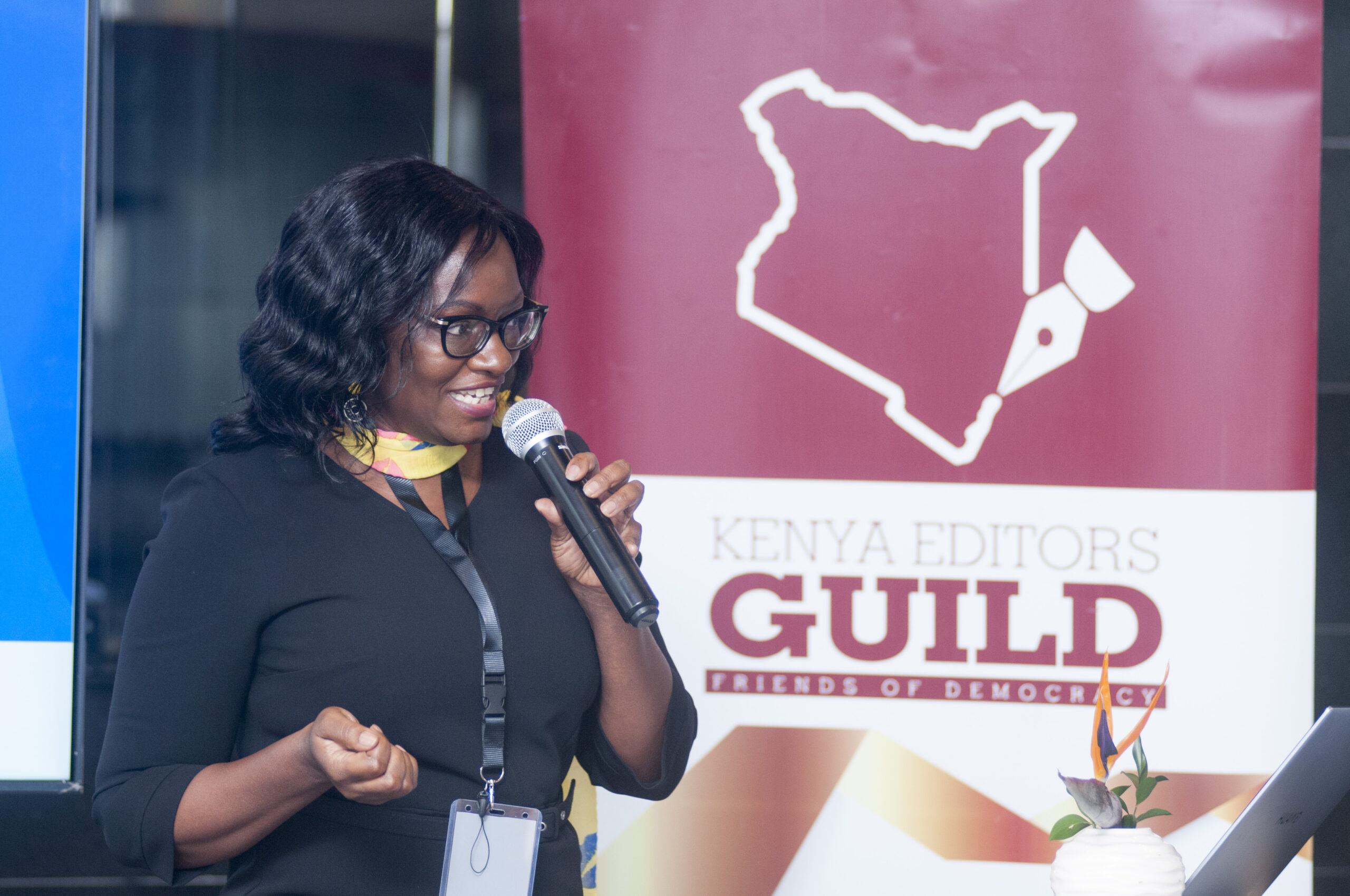
She expressed concerns that the Kenyan media are spreading misinformation on GMOs and cited a study whose findings were released by the Alliance for Science in February.
According to the study, 151 out of 376 articles published by 14 of Kenya’s top media outlets between October 2022 and January 2023 contained unchallenged negative misinformation about GMOs.
The majority of the misinformation ‘conversation’ in the Kenyan media concerned the topic of human health, with the issue of the scientific consensus on the safety of GMOs being second with 10 percent of mentions.
“This equates to 40 percent of media coverage by volume in Kenya promoting negative misinformation about GMOs. Only 3 percent of articles contained pro-GMO misinformation,” says the study.
The study says that 178 articles (47 percent) had no misinformation, while only 29 (eight percent) challenged misinformation on GMOs. Only three percent of articles contained pro-GMO misinformation.
The majority (more than 80 percent) of the misinformation ‘conversation’ in the Kenyan media concerned the topic of human health, with the issue of the scientific consensus on the safety of GMOs being the second-biggest topic with 10 percent of mentions.
“There is little science reporting in the Kenyan media because only a limited pool of journalists is committed to writing about science.”
“These very high rates of misinformation are perhaps among the worst in the world, and will make it very difficult for Kenyan citizens and policymakers to make informed decisions about GMOs in the face of such a storm of misinformation,” the study reads.
Dr Ochugboju said that while conducting the research, all the media houses they talked to said part of the problem is that scientists don’t want to talk to journalists even as they seek to report the truth.
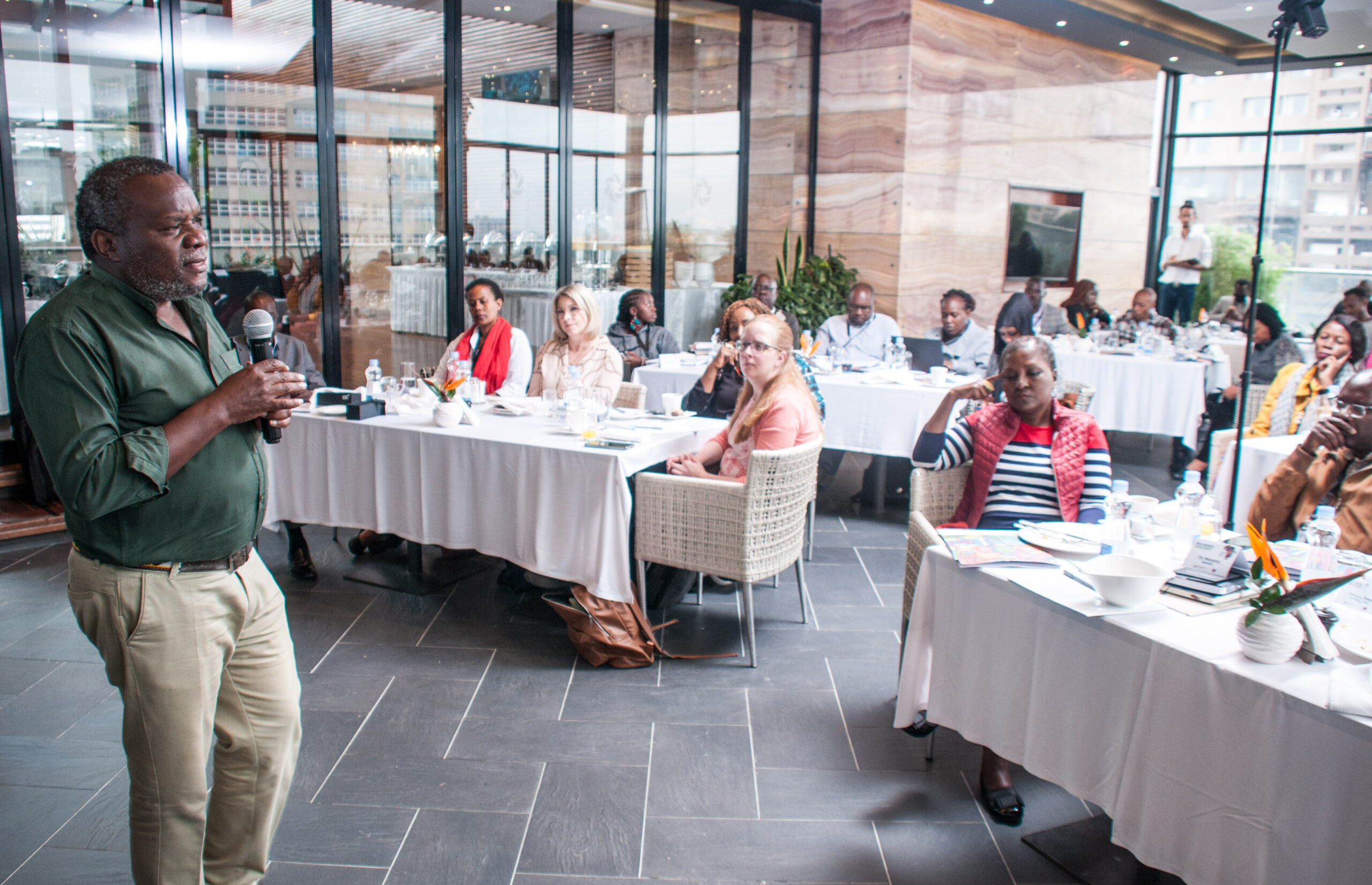
Independent editor Macharia Gaitho said there are two sides to every story and the Alliance should come clean on its role in the GMO debate.
“This conversation seems to have come with President William Ruto lifting the ban on importing and cultivating GMOs. We are still trying to understand whether that decision was driven by science or something else,” Gaitho said.
“There is a general lack of capacity and interest in science reporting. Most of the reporters, including interns, just want to report politics.”
He said reporters and editors do not have answers to a lot of questions concerning GMOs and conversations around the issue need to be enhanced.
“We indeed have gaps in science reporting, but as journalists even if we are reporting on unfamiliar territory, experts are always a phone call away,” he said.
Standard Group Intake Editor Nzau Musau said there is little science reporting in the Kenyan media because only a limited pool of journalists is committed to writing about science.
“There is a general lack of capacity and interest in science reporting. Most of the reporters, including interns, just want to report politics,” said Musau.
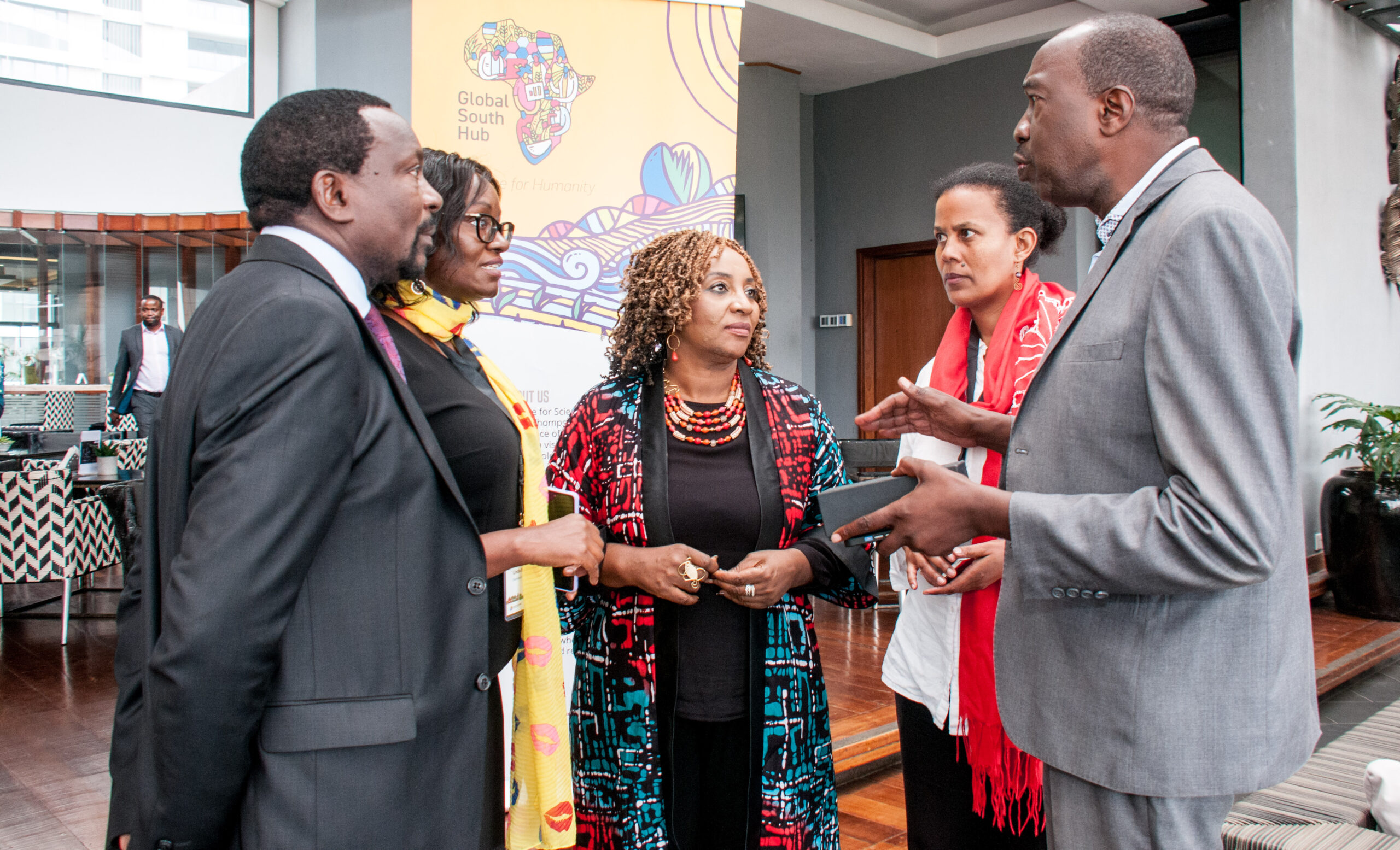
Head of Partnerships at Alliance for Science Michael Onyango said young journalists chase politicians because they expect to be paid.
“If we don’t develop and ensure that we have a large contingent of young Africans working in the lab, then this story will continue,” Onyango said.
“One of the things we are doing as Alliance for Science is that wherever we go across Africa, we engage and try to get sciences to be an option as a career path to get more of our scientists in the lab.”
Onyango and KEG Council Member for Print Linda Bach called for more collaboration between Alliance for Science and KEG, especially on training local journalists on how to tell science stories better.
O artigo foi publicado originalmente em Cornell Alliance for Science.